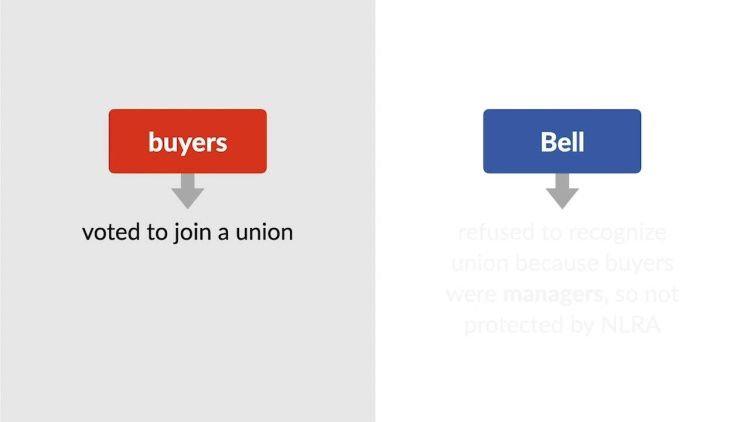Bell Aerospace Co. v. National Labor Relations Board
United States Court of Appeals for the Second Circuit
475 F.2d 485 (1973)
- Written by Lauren Petersen, JD
Facts
Bell Aerospace Co. (Bell) (plaintiff) employed buyers to supply its factories. Bell’s buyers wished to unionize but could not, because buyers were considered managerial employees by the National Labor Relations Board (NLRB) (defendant). The NLRB had prohibited managerial employees from unionizing, deeming those employees too entwined with management to come within the protections of the National Labor Relations Act. Under the Administrative Procedure Act, federal agencies could make new rules through a process called notice-and-comment rulemaking. Federal agencies could also informally make rules through adjudication, or the process of determining licenses and benefits on a case-by-case basis. In response to agitation to unionize by the buyers at Bell, the NLRB changed its positions regarding the status of buyers and managerial employees. By way of adjudication, the NLRB determined, among other things, that buyers were not necessarily managerial employees and, indeed, that Bell’s buyers were not managerial employees and could therefore unionize. Bell petitioned for review of the NLRB’s bargaining order, and the NLRB cross-petitioned for enforcement of the order.
Rule of Law
Issue
Holding and Reasoning (Friendly, C.J.)
What to do next…
Here's why 907,000 law students have relied on our case briefs:
- Written by law professors and practitioners, not other law students. 47,100 briefs, keyed to 996 casebooks. Top-notch customer support.
- The right amount of information, includes the facts, issues, rule of law, holding and reasoning, and any concurrences and dissents.
- Access in your classes, works on your mobile and tablet. Massive library of related video lessons and high quality multiple-choice questions.
- Easy to use, uniform format for every case brief. Written in plain English, not in legalese. Our briefs summarize and simplify; they don’t just repeat the court’s language.





